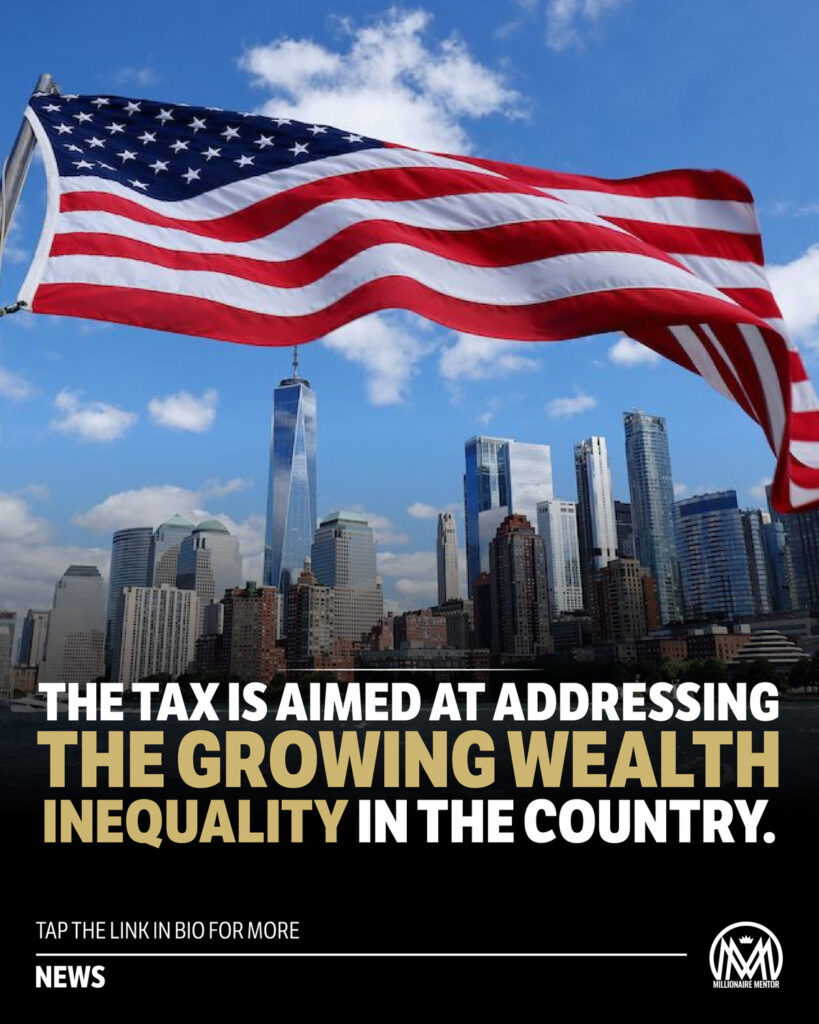President Biden has recently proposed a 20% tax on billionaires as part of his plans to fund investments in infrastructure, education, and healthcare.
President Biden has recently announced his plan to impose a 20% tax on billionaires as part of his efforts to finance crucial investments in infrastructure, education, and healthcare. This proposed tax is aimed at addressing the increasing wealth disparity in the United States and providing funding for initiatives that could benefit the entire nation.
The 20% tax would apply to individuals with a net worth of $1 billion or more, and it is estimated that it could raise billions of dollars in revenue to support the government’s initiatives aimed at improving the lives of Americans. The government hopes to use the revenue generated from this tax to invest in infrastructure, education, and healthcare, which are essential components of a strong and prosperous society.
Critics of President Biden’s proposal argue that the high tax rate could have a negative impact on the economy by discouraging investment and entrepreneurship. They believe that wealthy individuals and businesses may choose to invest their money elsewhere, taking jobs and capital with them, if they are faced with a high tax rate.



The proposed 20% tax on billionaires has sparked a heated debate in the United States, with both sides presenting compelling arguments for and against the proposal.
Supporters of the tax argue that it is necessary to address the growing wealth inequality in the country and provide funding for critical initiatives that can benefit the entire nation. They argue that the wealthiest Americans have benefited the most from the current economic system and should be expected to pay their fair share to support the country’s needs.
On the other hand, opponents of the tax argue that it could hurt the economy by discouraging investment and entrepreneurship. They argue that a high tax rate could drive wealthy individuals and businesses to invest elsewhere, taking jobs and capital with them. The result, they argue, could be a slowdown in economic growth, reduced job opportunities, and decreased investment in the United States.
Despite the opposition, President Biden remains firm in his proposal and is committed to ensuring that the wealthiest Americans pay their fair share. He believes that the revenue generated from the tax could be used to fund critical initiatives, including investments in infrastructure, education, and healthcare. The revenue generated from the tax could also help to reduce the national debt and provide funding for other important initiatives aimed at improving the lives of Americans.
It is important to note that the 20% tax on billionaires is not a new concept. Other countries have implemented similar taxes with varying levels of success. In France, for example, a 75% tax was imposed on the wealthy, but was eventually struck down by the country’s constitutional court. In the United Kingdom, a 50% tax was imposed on the wealthiest individuals, but was later reduced to 45% due to concerns about its impact on the economy.
As the debate over the proposed 20% tax on billionaires continues, it is essential to consider the potential impact that the tax could have on the economy, as well as its impact on the country’s wealthiest citizens. While the tax may generate significant revenue to support important initiatives, it is important to consider whether or not it could also discourage investment and entrepreneurship. Ultimately, the decision on whether or not to impose the tax will come down to balancing the need to address wealth inequality with the need to maintain a strong and vibrant economy.
In conclusion, the proposed 20% tax on billionaires is a bold step to address wealth inequality in the United States and provide funding for critical initiatives. While the proposal is likely to be met with resistance from some quarters, it is a necessary step to ensure that the wealthiest Americans pay their fair share and support the country’s needs. The decision on whether or not to impose the tax will require careful consideration of the potential impact on the economy and the wealthiest Americans, as well as the impact on the country as a whole.
Trending News Articles
 Nvidia’s Red-Hot 2024 Start a Bright Spot as S&P 500 Eyes Recordby Jason Stone●January 15, 2024
Nvidia’s Red-Hot 2024 Start a Bright Spot as S&P 500 Eyes Recordby Jason Stone●January 15, 2024 Amid scrutiny from the European Union (EU), Microsoft is presenting arguments in favor of its proposed merger with Activision.by Jason Stone●February 28, 2023
Amid scrutiny from the European Union (EU), Microsoft is presenting arguments in favor of its proposed merger with Activision.by Jason Stone●February 28, 2023 Amazon will not host re:MARS robotics and AI conference this year.by Jason Stone●June 17, 2023
Amazon will not host re:MARS robotics and AI conference this year.by Jason Stone●June 17, 2023 Mastery In Real Estate Investmentby Jason Stone●January 12, 2017
Mastery In Real Estate Investmentby Jason Stone●January 12, 2017





